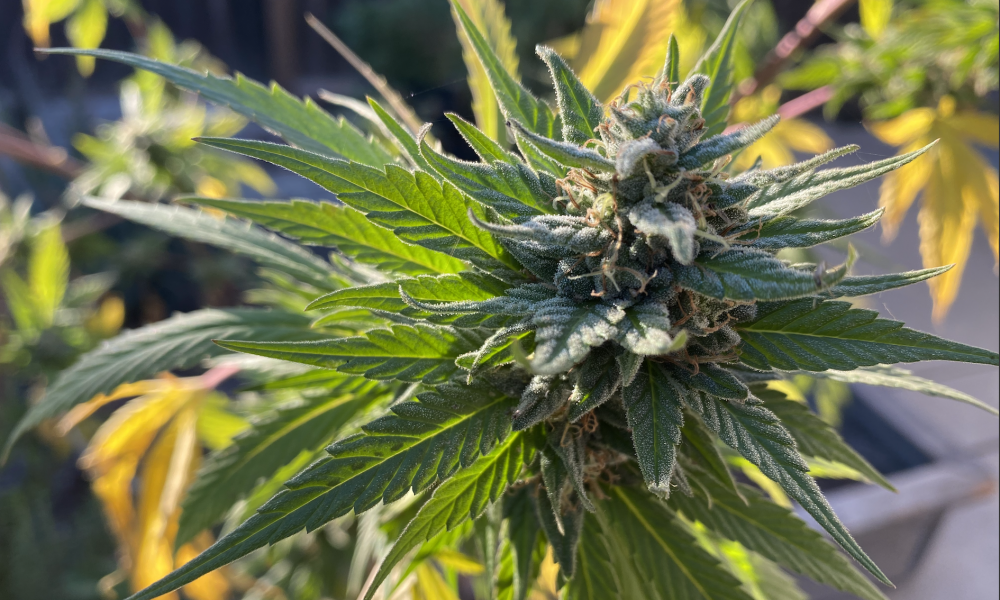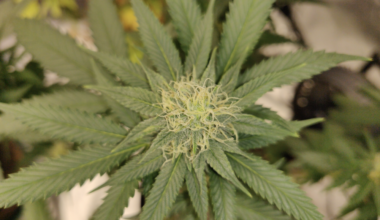New York marijuana regulators on Thursday approved rules that will set the state up to begin accepting cannabis retail applications from people disproportionately impacted by the drug war. Those applications could open up as soon as next month, bringing the state one step closer to fulfilling its goal of launching sales this year.
The Cannabis Control Board (CCB) also signed off on a mockup of the conditional adult-use retail license application, as well as revised regulations for the state’s medical marijuana program.
Axel Bernabe, chief of staff at the Office of Cannabis Management (OCM) said that the recreational sales regulations that went before the board are “really the cornerstone of [OCM’s] Seeding Opportunity Initiative, and it’s truly exciting to see that initiative finally take shape.”
View the approved application here: https://t.co/YJs94CBANF
— NYS Office of Cannabis Management (@nys_cannabis) July 14, 2022
“New York is putting social equity and small farmers at the heart of its cannabis industry,” he said.
In order to qualify for a conditional adult-use marijuana retail license, applicants must have faced a conviction for a cannabis-related offense prior to the enactment of legalization in the state, or have a direct relative with such a conviction, and they must also have experience operating a qualifying business.
The definition of a qualifying “justice-involved” individual is also being expanded to include people who were arrested for marijuana but convicted for a lesser offense, which advocates view as a positive step that will broader the applicant pool.
These regulations build on CCB’s approvals of numerous conditional cultivator applications, which are being granted to existing hemp businesses in the state. Gov. Kathy Hochul (D) signed a bill to create the conditional cultivation licenses in February.
At Thursday’s meeting, members approved an additional 20 cultivator applications, raising the total to 223.
NEW: New York State’s Cannabis Control Board has just approved another 20 adult-use cannabis cultivation licenses.
223 NY farms are now licensed to grow adult-use cannabis to be sold at retail dispensaries in 2022 as part of the Seeding Opportunity Initiative.
— NYS Office of Cannabis Management (@nys_cannabis) July 14, 2022
Regulators at the board will be embarking on a tour of cannabis farms across the state beginning on Friday.
CCB has also begun accepting applications from cannabis processors as well.
While the OCM official said on Thursday that the office diligently reviewed and responded to public comments on the proposed rules for conditional retailers, there’s been some frustration among stakeholders who feel that the input was not thoughtfully incorporated.
For what it’s worth, a recent poll found that most New Yorkers voters are against that proposal to prioritize retail licenses for justice-involved people.
For his part, Bernabe said that “we’ve taken a lot of the comments, very good comments, and we’ve incorporated them into the process that we have building out the broader regulations.”
Aaron Ghitelman, a spokesperson for OCM, told Marijuana Moment that regulators are “extremely thankful for the more than 600 comments received on these regulations, each of which was reviewed and taken into consideration.”
“The volume of comments demonstrate how interested New Yorkers are in this opportunity and provide a signal to us that our commitment to community engagement, around this and other opportunities, is being felt,” he said. “The majority of comments received on the [dispensary] regulations, however, were related to the broader social and economic equity program that the Office is tasked with building and not this opportunity that encompasses justice-involved entrepreneurs. Those comments will definitely be helpful as we build out that program and future regulations.”
Separately, OCM also recently publicized dozens of cease and desist letters that they have sent to businesses accused of illegally selling marijuana as the state prepares to launch its adult-use market.
But there’s been skepticism about the accuracy of the office’s enforcement targets. Some businesses that were named as operating illicit marijuana shops say they never received the notice; others, including one event and catering business, say that were wrongfully targeted, denying that they’ve been involved in cannabis sales.
As it stands, adults 21 and older can possess and publicly consume cannabis, as well as gift marijuana to other adults as long as they aren’t being compensated.
Last month, CCB also approved a series of proposed rules for marijuana packaging, labeling, advertising and testing requirements.
During April’s CCB meeting, regulators also approved revised regulations to allow medical marijuana patients to grow their own plants for personal use following a public comment period on initial rules that were proposed last year.
In general, the rule would allow registered patients and caregivers to grow up to six plants, only three of which could be mature. They could possess up to five pounds of cannabis derived from those plants, which is consistent with the state’s adult-use legalization law.
Meanwhile, New York lawmakers recently sent a budget proposal to the governor’s desk that includes provisions to let marijuana businesses take state tax deductions that are available to other industries despite an ongoing federal ban on cannabis. That was signed into law.
Sen. Jeremy Cooney (D) filed a standalone bill in December seeking a similar carve-out for the state’s burgeoning cannabis market. Assemblymember Donna Lupardo (D) followed suit in her chamber. Cooney also filed a bill in May to allow regulators to disclose certain information about cannabis licensees to financial institutions to promote marijuana banking.
Hochul has repeatedly emphasized her interest in efficiently implementing the legalization law.
The governor released a State of the State book in January that called for the creation of a $200 million public-private fund to specifically help promote social equity in the state’s burgeoning marijuana market.
That proposal was also cited in the governor’s executive budget, which was released in January. The budget also estimated that New York stands to generate more than $1.25 billion in marijuana tax revenue over the next six years.
Hochul said that while cannabis business licenses have yet to be approved since legalization was signed into law last year, the market stands to generate billions of dollars, and it’s important to “create opportunities for all New Yorkers, particularly those from historically marginalized communities.”
OCM has also been putting out PSAs to promote public education about the marijuana policy change, including a first-of-its-kind taxpayer-funded marijuana ad that aired in most of New York during an NBA Finals game last month. The PSA boldly addressed the racially discriminatory harms of cannabis criminalization and highlighted steps that state regulators are taking to right the wrongs of prohibition.
CCB also wants the opportunity to showcase its marijuana PSA campaign on the social media app TikTok, but it was told by the company previously that it could not use the platform because of its existing ban on the use of the word “cannabis.” The department recently sent a letter to TikTok, requesting a policy change for government marijuana-related ads that concern public education.
Here are some other ways that New York lawmakers and regulators are working to promote drug policy reform as the state prepares to implement retail marijuana sales:
The New York Senate approved a bill last month that would require public health insurance programs to cover medical marijuana expenses and clarify that private insurers are allowed to do the same.
Both chambers of the state legislature have passed a measure to encourage businesses to use hemp materials for packaging, construction and other industrial purposes. After final procedural steps, the measure will be on its way to the governor.
The state Department of Labor separately announced in recent guidance that New York employers are no longer allowed to drug test most workers for marijuana. Even prior to the enactment of legalization, New York City officials had established a local ban on pre-employment drug testing for cannabis.
A recent legal directive from the New York City Law Department (NYCLD) has put police and firefighter drug testing policy in the spotlight after a document that was leaked from the New York Police Department (NYPD) signaled that officers would no longer be subject to pre-employment, random or scheduled screening for cannabis because of the legal analysis.
A firefighters union claimed credit for the new directive, saying that it was responsive to inquires that it made to the city. The New York Fire Department (NYFD) said on Thursday that updated drug policy guidance would be issued in the next two weeks.
Separately, the mayor of New York City says he’s looking into the idea of authorizing marijuana to be grown in greenhouses on the rooftops of public housing buildings—an ambitious proposal that’s unlikely to sit well with the federal government, which provides funding to support the NYC Housing Authority (NYCHA).
A New York senator filed a bill in May that would legalize what would essentially be licensed community marijuana gardens for people who aren’t able to cultivate cannabis at their own homes.
Also that month, a New York Assembly committee advanced a bill to establish a statewide safe consumption site program, allowing regulators to authorize facilities where people could use currently illicit drugs in a medically supervised environment.
Meanwhile, a New York lawmaker introduced a bill last year that would require the state to establish an institute to research the therapeutic potential of psychedelics.
Another state legislator filed legislation in December to legalize psilocybin mushrooms for medical purposes and establish facilities where the psychedelic could be grown and administered to patients.
Medical Disclaimer:
The information provided in these blog posts is intended for general informational and educational purposes only. It is not a substitute for professional medical advice, diagnosis, or treatment. Always seek the advice of your physician or other qualified healthcare provider with any questions you may have regarding a medical condition. The use of any information provided in these blog posts is solely at your own risk. The authors and the website do not recommend or endorse any specific products, treatments, or procedures mentioned. Reliance on any information in these blog posts is solely at your own discretion.







